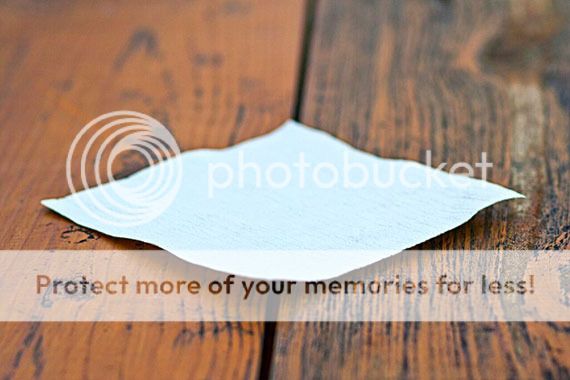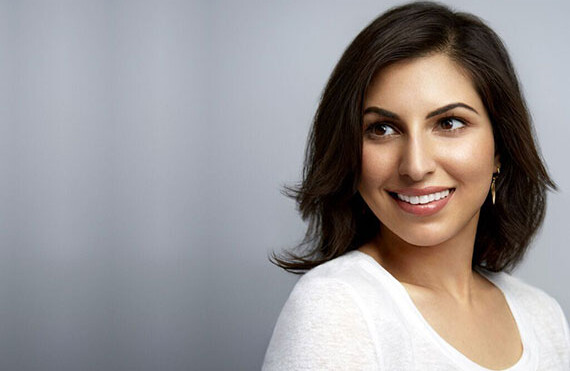At a moment when most of us look to Silicon Valley for the next highly sophisticated technological breakthrough that will change the world, it's increasingly unusual to interview an inventor and designer whose creation neither beeps nor shines. Kavita Shukla was only 17 when she invented FreshPaper, small square sheets of paper infused with a secret mix of spices that when tossed into the crisper drawers in the fridge or produce boxes at the supermarket, help keep fruits and vegetables fresh up to two to four times longer. This innovation could be part of the solution to one of humanity's biggest challenges: food waste.
IRENE PEDRUELO: Food waste is a relatively recent phenomenon. For thousands of years, humans tried to preserve the scarce amount of food they had in a variety of ways, such as drying, salting, and pickling. But the rapid evolution of refrigeration technology has made us, at least the so-called developed countries, mostly forget about these ancient methods. Today, we waste one-third of the food produced worldwide. When did you first realize food waste is such a colossal problem?
KAVITA SHUKLA: I never thought that I would be spending my life devoted to, and totally fascinated by, this challenge of global food waste. The enormity of food waste is really staggering. Sometimes even now—I've been doing this now for years— it can seem overwhelming. But the way I came upon it was quite serendipitous. I had been visiting my grandmother in India when I was 12 years old. I had been warned by many people to be very careful and to not drink the tap water. On my first day there, I was brushing my teeth and I drank almost an entire cup. My grandmother gave me this mixture of spices, like a spice tea, which she said was a home remedy that had been used in my family for generations. Although I was quite skeptical, I didn't really have any other option. So I drank it and I ended up not getting sick. That was the beginning of a lifelong fascination with spices.

CREDIT: Fenugreen FreshPaper
IRENE PEDRUELO: How did that incident trigger your interest for science?
KAVITA SHUKLA: As a young girl, I was always interested in creating things. I am a first-generation immigrant, so I didn't always have a lot of resources growing up. Creating things and doing hands-on activities was a way for me to really feel that I was able to create something meaningful, even in an environment where I didn't always fit in. I spent a lot of time learning from my grandmother about the different spices that she used. Most of them are spices that are commonly used in cooking across the globe.
IRENE PEDRUELO: After your visit to India you went back home to Maryland and decided to turn your newly-discovered fascination for spices into your science project.
KAVITA SHUKLA: Yes, I started a middle-school science project. At first, I was just adding spices to jars of dirty pond water and trying to understand what happened. Then I started to experiment with moldy strawberries and fruits and vegetables to see if applying the spices in different formats could help keep that produce fresh for longer. I was a child; they were really simple experiments. Throughout middle school and high school I was like that odd kid storing rotting fruits and vegetables in my garage. What I ended up learning was that some spices were very effective in inhibiting bacterial and fungal growth. I was so astounded that something as simple as these spices could be effective in keeping food fresh for longer. It really opened my eyes to the problem of food spoilage. Eventually, tinkering with different spices and formats led to FreshPaper, which is a really simple and very intuitive way to keep food fresh for longer.
IRENE PEDRUELO: For several years you tried to create a non-profit that would bring this product, FreshPaper, into the developing world, but it did not succeed. Was it a matter of timing, lack of interest from donors, or that the non-profit model was not right for this idea?
KAVITA SHUKLA: I think timing is certainly a big factor in this. I was 17 when I really started to work on FreshPaper as a technology. I was in my senior year of high school when I found out that I'd be getting a patent for it. It was so far beyond anything I ever could have imagined, especially coming from my background. At the time I was thinking about farmers and villages in India and Africa. I really didn't think of this as a consumer product or something that people would ever be willing to purchase in a country like the United States. That's why it was so heartbreaking and so disappointing when I tried to create the non-profit in college, and it simply did not work. After that I thought, "Well, if I can't get it to India, if I can't get it to the people who could benefit from it, it has no real-world applications at all." So I gave up on it for a little bit, because I never saw a need for it anywhere else.
IRENE PEDRUELO: A couple of years later you decided to try it again. You took FreshPaper to a farmers' market in Massachusetts, which is known for being a forward-looking state when it comes to environmental legislation. Indeed, in October of 2014 the state banned supermarkets from sending food waste to landfills. What was different then?
KAVITA SHUKLA: Massachusetts, where I was living and working at the time, was a really incredible place to start. It was a community that really supported the idea and incubated it until it started to spread. But, in all honesty, the biggest shift was really in my own belief that it was viable. I took FreshPaper to my farmers' market in 2011. My idea was to create a very low-cost version of FreshPaper. At first, I was making it at home and giving it to the farmers to see if they could keep their produce fresh for longer at the market. That was supposed to be my last attempt to get this idea out into the world, but I soon realized that people, shoppers, were actually willing to pay for it. We saw a tremendous amount of awareness in local communities about food waste that hadn't been there a couple of years before. Within a few months we set up an online store. We were shipping all across the country, and within about a year, we started shipping to consumers worldwide and started a partnership with Whole Foods. It all took off very quickly. Even today, when I walk into Bed Bath & Beyond or Whole Foods, I'm just amazed that people are buying it and that it has become a successful consumer brand.
IRENE PEDRUELO: Why did you decide to move away from the non-profit model and turn FreshPaper into a for-profit or social enterprise?
KAVITA SHUKLA: It's really important for us to prove that you can create a very successful for-profit enterprise where you design technologies that can be used by anyone anywhere in the world. Too often designers and consumer brands ignore most of the world: the people who are living on very little.
What we did realize is that the tremendous consumer demand might be a way for us to actually make this an affordable technology, something that we could subsidize and donate for food banks in the United States as well as for people in the developing world who don't have access to this technology. Aid workers have already taken the technology to places in Africa and India that we could not have reached on our own. One of the most exciting things that we have started to do now is work with large-scale farmers to bring FreshPaper into packaging from farm to fork. We want to extend our reach beyond just doing something like a "Buy One, Give One" program.
IRENE PEDRUELO: Some people argue that for innovation and change to spread faster and more efficiently, it's better to make the technology open source. Is this in your plans?
KAVITA SHUKLA: When I first tried to create a non-profit, that was the idea. My goal was to get FreshPaper out there; get everyone the tools and technologies. But we really had to factor food safety into this. That's one of the reasons that we make FreshPaper in the United States. All of the ingredients we use are organic and fair trade. Of course, once we are able to have the scale where we could open facilities in different parts of the world, I would love to employ people who could benefit directly from this technology in creating it.
IRENE PEDRUELO: How easy or difficult has it been to convince farmers to actually incorporate FreshPaper into their production chain?
KAVITA SHUKLA: In the beginning it was quite difficult. I couldn't even access large-scale farmers; I had no way of reaching them. Often farmers are used to doing things in a certain way. When you look at food production, things have been done in the same way for a very long time. Once we started to work with retailers and to have tremendous consumer demand, a lot of those retailers actually connected us with their producers. That was how we started to get FreshPaper into the supply chain. The world's farmers are actually harvesting enough food to feed the planet, but because of these inefficiencies in food distribution, because of food spoilage, we're not actually able to feed everyone. The challenge is so massive that making really small and simple interventions can be very effective.
IRENE PEDRUELO: France, for instance, recently passed a pioneering food waste bill to ban supermarkets from sending food to landfills. The new law forces supermarkets to donate the food that otherwise would go to waste. The United States is still far from adopting such a forward-looking measure. As someone who is working to tackle food waste in the U.S. supply chain, are you optimistic?
KAVITA SHUKLA: The tremendous grassroots support that I've seen for our idea has inspired me. I've also been amazed that some of the biggest retailers and companies in the world have reached out to us to partner. These are companies that I thought would never be interested in working with us. I can see the tide shifting. Large organizations and individuals at home realize that food waste is a massive challenge but it's also one that every single one of us can do something about.
Policy Innovations' Seven Quick Questions
Where do you see yourself in 20 years? I'd love to still be creating simple tools and technologies that impact people's lives.
What are the three main attributes of an innovator? It's somebody who's curious, creative, and persistent.
What other obsessions do you have in addition to tackling food waste? I love design, art, and love animals. I really love pursuing things and doing things that make me feel creative.
What do you do in your free time? I spend time with my family and friends, I love just being outside; it clears my mind. I love to meet and speak with interesting people who have ideas and who want to make a difference in this world.
I'm afraid of . . . apathy.
Life is about . . . change.
What would you tell your younger self if you had to start over again? I would tell her: "You are enough to pursue your ideas and to do all that you hope to do."





